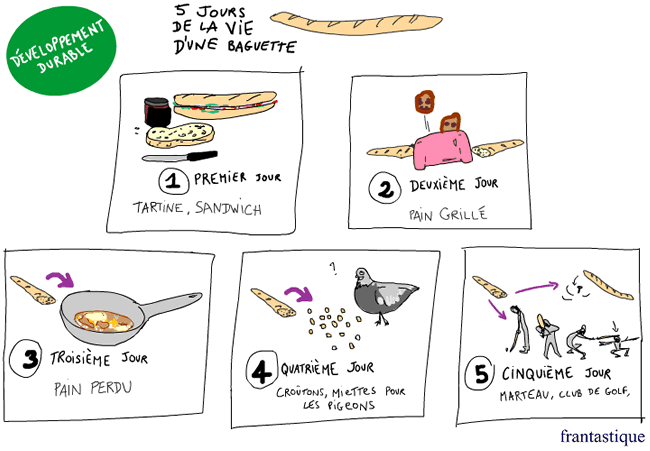The best-known type of French bread is the baguette, which was possibly introduced to France in the early 19th century by August Zang from Austria, though that’s another story.
Baguettes only stay fresh for a day, so what do you do with them once they start to go hard?
Here are a few possibilities:

Here’s a translation:
1. First Day: sliced with butter, sandwich
2. Second Day: toast
3. Third Day: French toast (“lost bread”)
4. Fourth Day: croutons, crumbs for the pigeons
5. Fifth Day: hammer, golf club
Image supplied by Frantastique, who can teach you all about the bizarre French cuisine, and help you to learn French.
I was told that if your baguette is a bit stale you can revive it by sprinkling a bit of water on slices and blasting them in a microwave for a short while. I haven’t tried this as I’m am microwaveless.
The French word baguette can also refer to:
– a magic wand = baguette magique; baguette de fée; baguette de sourcler
– chopsticks = baguettes chinoises
– conductor’s baton = baguette de direction; baguette de chef d’orchestre
– a drumstick = baguette de tambour
Expressions incorporating baguette include:
– sous la baguette de … = conducted by …
– faire marcher qn à la baguette = to rule sb with an iron hand
What are baguettes called in your country?
